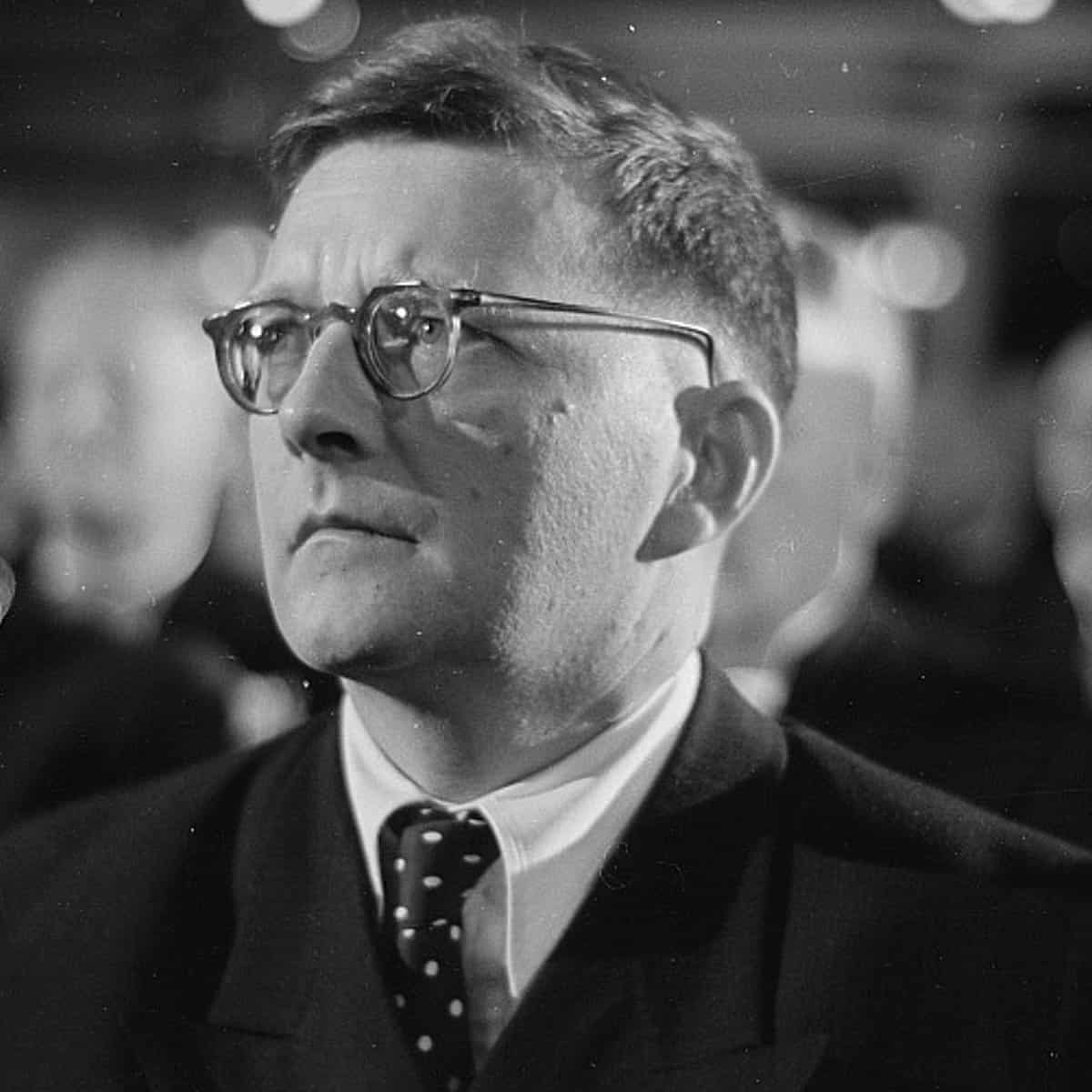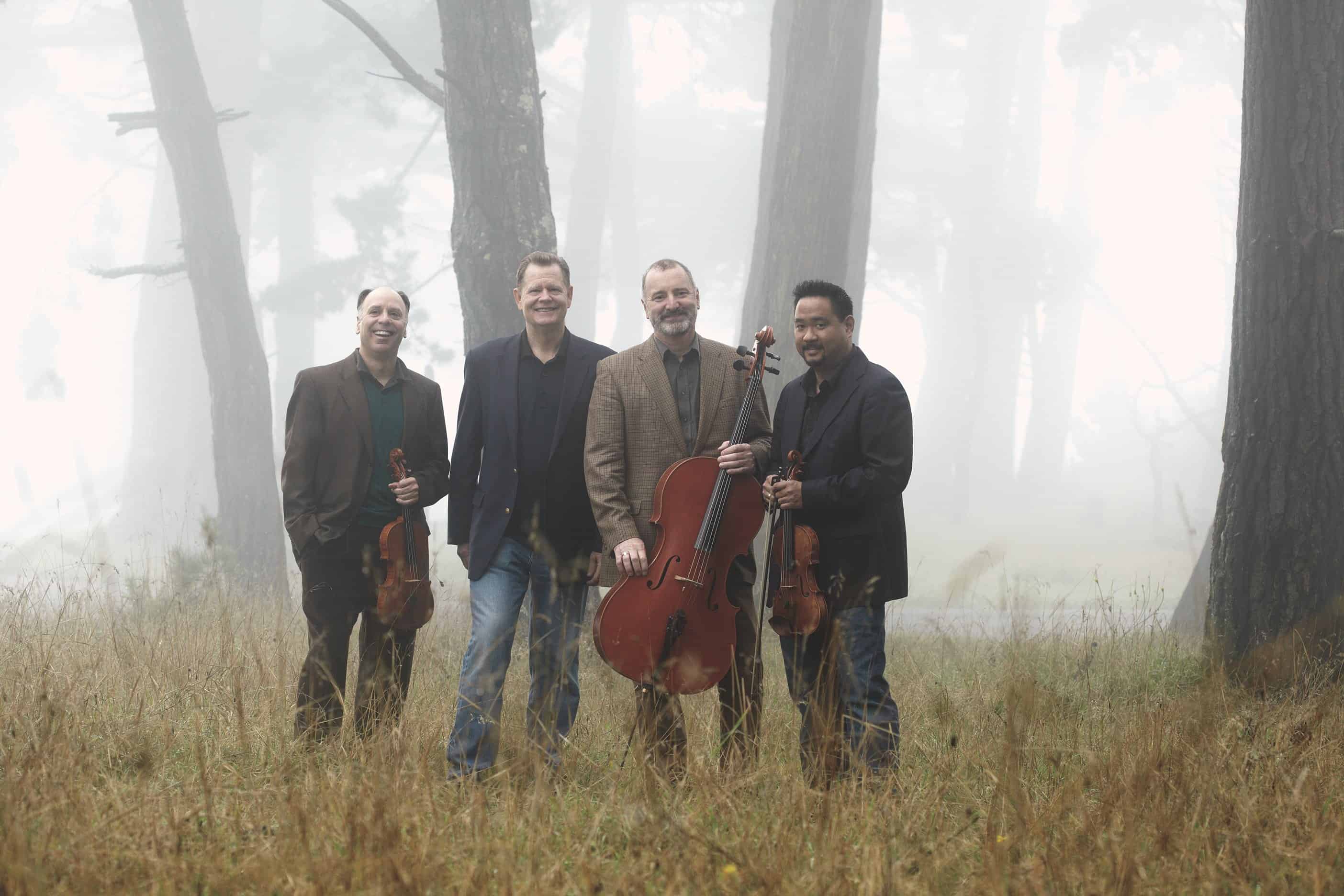
In the summer of 1960 Shostakovich went to Dresden, where he was to write a score for the film Five Days, Five Nights, a joint East German and Soviet production. The devastation of Dresden by Allied bombing in 1945—the event that drove Kurt Vonnegut to write Slaughterhouse Five—was still evident in 1960, and it stunned the composer. He interrupted his work on the film score and in the space of three days (July 1214) wrote his String Quartet No. 8, dedicated “To the memory of the victims of fascism and war.”
The Eighth Quartet has become the most-frequently performed of Shostakovich’s 15 quartets, but this intense music appears to have been the product of much more than an encounter with the horrors of war—it sprang straight from its creator’s soul. In it Shostakovich quotes heavily from his own works: there are quotations from the First, Fifth, Tenth and Eleventh Symphonies, Piano Trio in E Minor, Cello Concerto No. 1, and his opera Lady Macbeth of the Mtsensk District, as well as from several Russian songs. The quartet also uses as its central theme Shostakovich’s musical “signature”: he took the letters DSCH (D for Dmitri and SCH from the first three letters of his last name in its German spelling) and set down their musical equivalents: DEs (E-flat in German notation) CH (B in German notation). That motto—D- Eb-C-B—is the first thing one hears in this quartet, and it permeates the entire work.
Preview on Spotify:
Why should a quartet inspired by the destruction of a foreign city (and an “enemy” city, at that) have turned into so personal a piece of music for its composer? Vasily Shirinsky–second violinist of the Beethoven Quartet, which gave the premiere—offered the official Soviet explanation of so dark a work: “In this music, there is a portrait of Shostakovich, the musician, the citizen and the protector of peaceful and progressive humanity.” But in Testimony, Shostakovich’s much disputed memoirs, the composer strongly suggests that the quartet is not about fascism but is autobiographical and is about suffering, and he cites his quotation of the song “Languishing in Prison” and of the “Jewish theme” from the Piano Trio as pointing a way toward understanding the quartet.
The String Quartet in a Time of War:
Benjamin Britten and His Contemporaries
Sunday, May 21, 2017 – 2:00pm
Vanderhoef Studio Theatre
Mondavi Arts Center
TICKETS
Sunday, May 21, 2017 – 7:00pm
Vanderhoef Studio Theatre
Mondavi Arts Center
TICKETS
In her recent biography of the composer, Laurel Fay suggests an even darker autobiographical significance. In the spring of 1960, just before his trip to Dresden, Shostakovich was named head of the Union of Composers of the Soviet Federation, and the Russian government clearly expected such a position to be held by a party member. Under pressure to join the party, the composer reluctantly agreed and then was overwhelmed by regret and guilt. There is evidence that he intended that the Eighth Quartet, a work full of autobiographical meaning, should be his final composition and that he planned to kill himself upon his return to Moscow. Five days after completing the quartet, Shostakovich wrote to a friend: “However much I tried to draft my obligations for the film, I just couldn’t do it. Instead I wrote an ideologically deficient quartet nobody needs. I reflected that if I die some day then it’s hardly likely anyone will write a work dedicated to my memory. So I decided to write one myself. You could even write on the cover: ‘Dedicated to the memory of the composer of this quartet.’ ”
Was the Eighth Quartet to be Shostakovich’s epitaph for himself?
The quartet is extremely compact and focused—its five interconnected movements last 20 minutes. The brooding Largo opens with the DSCH motto in the solo cello, which soon turns into the fanfare from the First Symphony, followed in turn by a quotation from the Fifth Symphony. The movement, somber and beautiful, suddenly explodes into the Allegro molto, in which the first violin’s pounding quarternotes recall the “battle music” from the composer’s wartime Eighth Symphony. At the climax of this movement comes what Shostakovich called the “Jewish theme,” which seems to shriek out above the sounds of battle. The Allegretto is a ghostly waltz in which the first violin dances high above the other voices. Each of the final two movements is a Largo. The fourth is built on exploding chords that some have compared to gunshots, others to the fatal knock on the door in the middle of the night. At the climax of this movement come the quotations from the prison song and—in the cello’s high register—from Shostakovich’s opera Lady Macbeth. The fifth movement returns to the mood and music of the first. The DSCH motto enters fugally and many of the quartet’s earlier themes are recalled before the music closes very quietly on a chord marked morendo.
—Eric Bromberger

